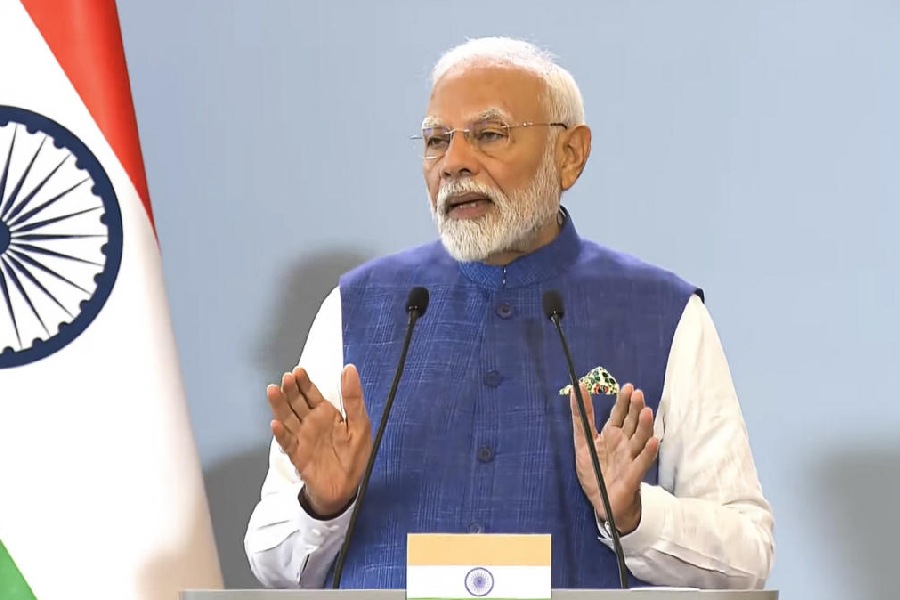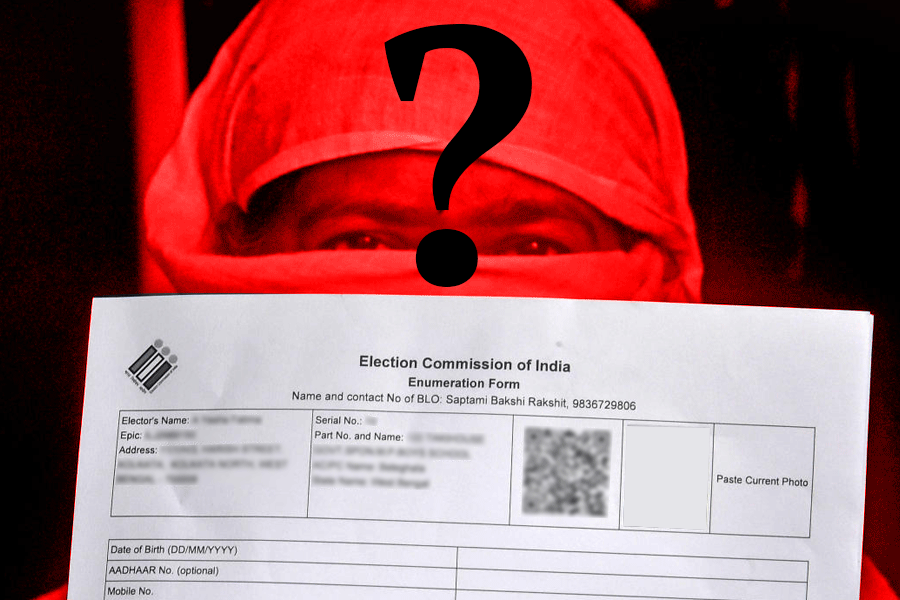Prime Minister Narendra Modi on Saturday said that the sedition law has been scrapped in the new laws that have replaced the British-era Indian Penal Code and the Code of Criminal Procedure.
The PM’s critics might like to call it an experiment with truth.
“In Bharatiya Nyay Sanhita we have found a new directive for delivering justice,” Modi said in Hindi at the inauguration of the National Conference of District Judiciary at Bharat Mandapam in New Delhi.
“The focus of new criminal laws is to put citizens’ first and justice first. Our criminal laws have been freed from the shackles of colonialism. British laws like those dealing with sedition have been scrapped.”
Modi said the three new laws that came into effect from July 1 this year – the Bharatiya Nyay Sanhita, Bharatiya Nagarik Suraksha Sanhita, and the Bharatiya Sakshya Adhiniyam, which replaced the Indian Penal Code, the Code of Criminal Procedure and the Evidence Act, respectively – were designed not just to punish the criminals but also to protect the citizen.
The Section 124A of the Indian Penal Code, 1860, defined sedition as “whoever by words, either spoken or written, or by signs or by visible representation, or otherwise, brings or attempts to bring into hatred or contempt, or excited or attempts to excite disaffection towards the Government established by law in (India) shall be punished with imprisonment for life…”
Disaffection included disloyalty and all feelings of enmity.
So, has the sedition law been really scrapped in the new laws? The answer is both yes and no. And it leans towards no if one considers protection of the citizen from the power of the state as the yardstick.
It is true that the word “sedition” finds no mention in the Bharatiya Nyay Sanhita (BNS).
However, in Chapter VII, which deals with offences against the state, section 150 of the Bharatiya Nyay Sanhita, says: “Whoever by any act, or by any illegal omission, conceals the existence of a design to wage war against the Government of India, intending by such concealment to facilitate, or knowing it to be likely that such concealment will facilitate, the waging of such war, shall be punished with imprisonment of either description for a term which may extend to ten years, and shall also be liable to fine.”
Under Section 152, it further adds, “whoever, purposely or knowingly by words, either spoken or written, or by signs, or by visible representation, or by electronic communication or by use of financial mean, or otherwise, excites, secession or armed rebellion or subversive activities, or encourages feelings of separatist activities or endangers sovereignty or unity and integrity of India; or indulges in or commits any such act shall be punished with imprisonment for life or with imprisonment which may extend to seven years, and shall also be liable to fine.”
Delhi-based lawyer Sanjoy Ghose had told The Telegraph Online earlier that in the new laws, “sedition has been brought in through the backdoor”.
He had pointed out: “Any criticism [of the government] can be construed as criticism. Moreover they have given an officer of a police station the power to decide what is an act of terrorism and who can be called a terrorist. This leaves so much room for abuse of power.”











